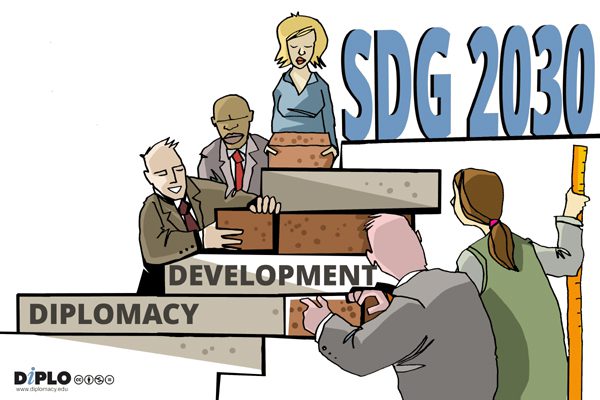
Humanitarian diplomacy
In the early 1860s, Henri Dunant, a Swiss businessman, witnessed the aftermath of the Battle of Solferino and was appalled by the lack of medical care for wounded soldiers. His efforts to mobilise local communities and governments to provide neutral and impartial aid laid the foundation for what we now recognise as humanitarian diplomacy. Dunant’s advocacy led to the establishment of the International Committee of the Red Cross (ICRC) and the adoption of the first Geneva Convention in 1864, marking a pivotal moment in the history of humanitarian diplomacy.
What is humanitarian diplomacy?
Humanitarian diplomacy is defined by the IFRC as the act of persuading decision-makers and opinion leaders to act in the interests of vulnerable people, with full respect for fundamental humanitarian principles (IFRC, 2009a). This involves a commitment to saving lives, alleviating suffering, and maintaining human dignity. The core principles of humanitarian diplomacy, derived from the UN General Assembly and the International Conference of the Red Cross and Red Crescent, guide humanitarian actors worldwide.
Why is humanitarian diplomacy relevant?
Humanitarian diplomacy is crucial in today’s complex global landscape, where crises often involve multiple actors and overlapping challenges. It plays a significant role in influencing policies and actions that impact vulnerable populations, especially in conflict zones and disaster-stricken areas. By navigating political, social, and economic complexities, humanitarian diplomacy helps ensure that humanitarian principles are upheld, and that aid reaches those in need.
How is humanitarian diplomacy performed?
Humanitarian diplomacy employs a range of techniques, including negotiation, advocacy, and public engagement. It involves discreet diplomacy, such as private advocacy and negotiations, as well as public advocacy through media campaigns and participation in global events. Humanitarian diplomats work to influence opinion leaders, mobilise resources, and secure access to affected populations.
Where is humanitarian diplomacy performed?
Humanitarian diplomacy operates at various levels, from local to global. It involves engagement with governments, international organisations, and local communities, addressing issues such as conflict resolution, disaster response, and human rights advocacy. Humanitarian diplomats work in diverse settings, from negotiating access in conflict zones to influencing policy at international forums.
When was humanitarian diplomacy evaluated?
The practice of humanitarian diplomacy has evolved over time, with significant developments occurring in the post-World War II era and the end of the Cold War. The recognition of non-state actors in humanitarian efforts and the increasing complexity of global crises have expanded the scope and importance of humanitarian diplomacy. Key moments include the adoption of the Geneva Conventions and the establishment of international humanitarian organisations.
Who are the actors in humanitarian diplomacy?
Humanitarian diplomacy involves a wide range of actors, including governments, international organisations, NGOs, and local communities. Key players include the IFRC, ICRC, and other humanitarian agencies that work to influence policies and actions at various levels. Non-state actors, such as NGOs and community leaders, play a critical role in advocating for humanitarian principles and mobilising support.
Conclusion
Humanitarian diplomacy is an essential tool for addressing the challenges faced by vulnerable populations worldwide. By influencing decision-makers and fostering cooperation, humanitarian diplomacy helps ensure that humanitarian principles are upheld and that aid reaches those in need. As global crises become increasingly complex, the role of humanitarian diplomacy in promoting human rights and dignity remains more important than ever.
References
-
Active Learning Network for Accountability and Performance in Humanitarian Action [ALNAP] (2022) The State of the Humanitarian System. Link
-
Harroff-Tavel M (2006) The Humanitarian Diplomacy of the International Committee of the Red Cross. Link
-
International Committee of the Red Cross [ICRC] (no date) Humanitarian Diplomacy. Link
-
International Federation of Red Cross and Red Crescent Societies [IFRC] (2009a) Humanitarian Diplomacy Policy – Explanatory Memorandum. Geneva: International Federation of Red Cross and Red Crescent Societies.
-
International Federation of Red Cross and Red Crescent Societies [IFRC] (2009b) Humanitarian Diplomacy Policy. Link
-
UNICEF (2010) Advocacy Toolkit. Link



